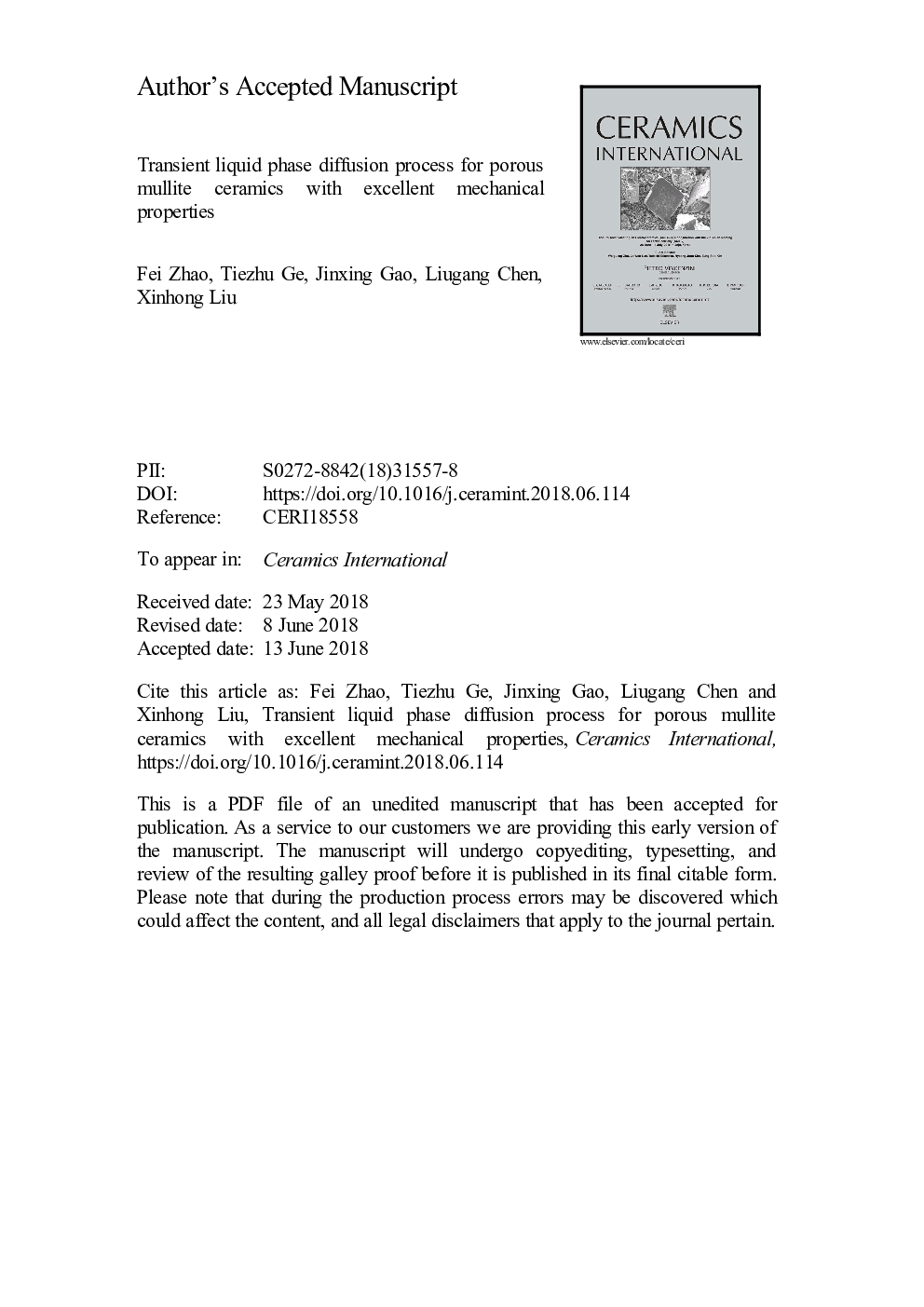| Article ID | Journal | Published Year | Pages | File Type |
|---|---|---|---|---|
| 10155367 | Ceramics International | 2018 | 21 Pages |
Abstract
Porous mullite ceramics were fabricated by the transient liquid phase diffusion process, using quartz and fly-ash floating bead (FABA) particles and corundum fines as starting materials. The effects of sintering temperatures on the evolution of phase composition and microstructure, linear shrinkage, porosity and compressive strength of ceramics were investigated. It is found that a large amount of quartz and FABA particles can be transformed into SiO2-rich liquid phase during the sintering process, and the liquid phase is transient in the Al2O3-SiO2 system, which can accelerate the mullitization rate and promote the growth of mullite grains. A large number of closed pores in the mullite ceramics are formed due to the transient liquid phase diffusion at elevated temperatures. The porous mullite ceramics with high closed porosity (about 30%) and excellent compressive strength (maximum 105â¯MPa) have been obtained after fried at 1700â¯Â°C.
Keywords
Related Topics
Physical Sciences and Engineering
Materials Science
Ceramics and Composites
Authors
Fei Zhao, Tiezhu Ge, Jinxing Gao, Liugang Chen, Xinhong Liu,
